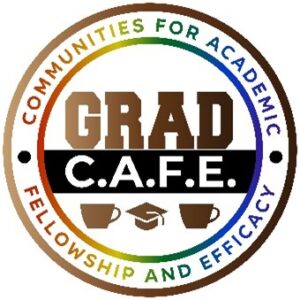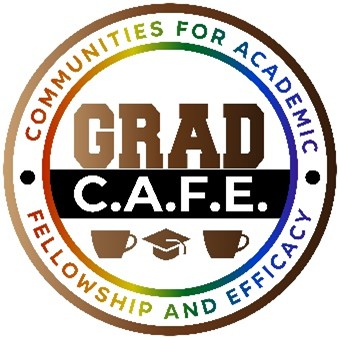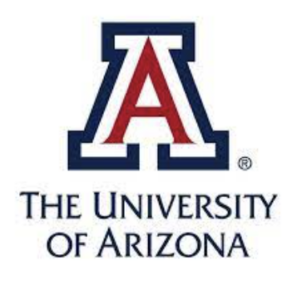Graduate Communities for Academic Fellowship & Efficacy (Grad CAFE): A Holistic Multi-tiered Mentoring Model
 This National Science Foundation Innovations in Graduate Education (IGE) award to the University of Arizona will help to increase the success of all students in STEM through the creation, expansion, and assessment of the Graduate Communities for Academic Fellowship and Efficacy (Grad CAFE) program. The University of Arizona (U of A) is a Research 1 (R1) doctoral degree-granting university, a Hispanic Serving Institution (HSI) and a public-land grant university with a goal to increase recruitment, retention, and completion for all students in STEM. Grad CAFE is a strengths-based, holistic, intersectional, interdisciplinary multi-tiered mentoring community that has the potential to radically transform how we support graduate scholars in STEM and beyond. Grad CAFE is different from other mentoring programs in several ways. Unlike most mentoring programs, Grad CAFE moves beyond traditional one-to-one mentoring to create a peer mentoring community within a multi-tiered mentoring program. Additionally, Grad CAFE provides more than specific discipline- or identity-focused mentoring to create an inclusive space for all students to come together and build community. Finally, Grad CAFE is not just a single-year program but builds into a multi-year program in which students can join in their first or second year, complete their comprehensive exams and return as a community leader, providing near-peer mentoring for newer students while building their teaching, facilitation, curriculum, and leadership skills. Grad CAFE will provide a blueprint for creating and scaling up from a small cohort of students to serving over 200 students in the fifth year without significantly increasing the time commitment for faculty and staff, providing an easily replicated model for other institutions to follow.
This National Science Foundation Innovations in Graduate Education (IGE) award to the University of Arizona will help to increase the success of all students in STEM through the creation, expansion, and assessment of the Graduate Communities for Academic Fellowship and Efficacy (Grad CAFE) program. The University of Arizona (U of A) is a Research 1 (R1) doctoral degree-granting university, a Hispanic Serving Institution (HSI) and a public-land grant university with a goal to increase recruitment, retention, and completion for all students in STEM. Grad CAFE is a strengths-based, holistic, intersectional, interdisciplinary multi-tiered mentoring community that has the potential to radically transform how we support graduate scholars in STEM and beyond. Grad CAFE is different from other mentoring programs in several ways. Unlike most mentoring programs, Grad CAFE moves beyond traditional one-to-one mentoring to create a peer mentoring community within a multi-tiered mentoring program. Additionally, Grad CAFE provides more than specific discipline- or identity-focused mentoring to create an inclusive space for all students to come together and build community. Finally, Grad CAFE is not just a single-year program but builds into a multi-year program in which students can join in their first or second year, complete their comprehensive exams and return as a community leader, providing near-peer mentoring for newer students while building their teaching, facilitation, curriculum, and leadership skills. Grad CAFE will provide a blueprint for creating and scaling up from a small cohort of students to serving over 200 students in the fifth year without significantly increasing the time commitment for faculty and staff, providing an easily replicated model for other institutions to follow.
Grad CAFE seeks to identify evidence-based best practices for holistic, community-based support for supporting graduate students in STEM. The theoretical framework of Grad CAFE is based on Wai-Ling Packard’s (2016) factors impacting student persistence (capacity, interest, and belonging) using three of the four major components of HSI “servingness” (outcomes, experiences, and internal organizational dimensions) identified by Garcia et al. (2019). Grad CAFE is a multi-tiered mentoring program that spans the entire U of A STEM ecosystem. This research seeks to identify through formative and summative assessments how Grad CAFE impacts graduate students in STEM at an R1 HSI. To measure the impact of the program the researchers will assess if participants report 1) a greater sense of capacity, 2) improved sense of self-efficacy, 3) greater sense of interest, 4) greater sense of belonging, 5) increased satisfaction, 6) higher retention rates, and 7) higher completion rates as compared to non-participants.
References
Garcia, G. A., Núñez, A., & Sansone, V.A. (2019). Toward a multidimensional conceptual framework for understanding “servingness” in Hispanic-Serving Institutions: A synthesis of the research. Review of Educational Research 89(5), 745-784.
Wai-Ling Packard, B. (2016). Successful STEM mentoring initiatives for underrepresented students: a research-based guide for faculty and administrators. Stylus Publishing.
- Read the abstract
- Learn more about the Grad CAFE
- Read the Grad CAFE year 1 report here

Learn more about Grad CAFE
This video provides an overview of the Grad CAFE program, including the program's structure and history.

